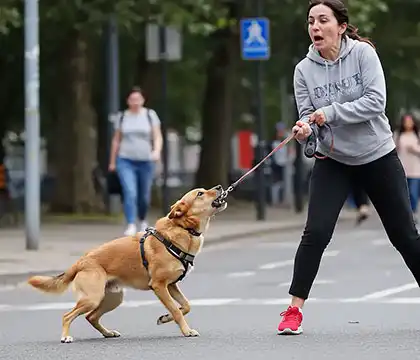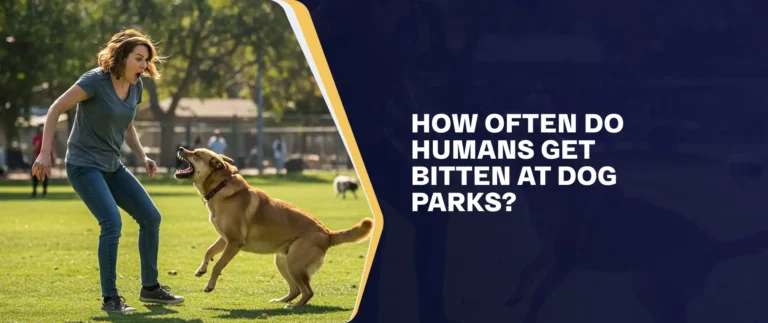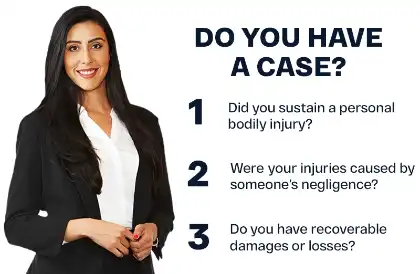Table of Contents
Dog bites cause more than just puncture wounds and scarring. They can leave lasting emotional trauma and burdens on injured individuals with steep medical bills, lost income, and long-term care needs. They do not have to face these hardships alone. The state’s strict liability law generally holds dog owners responsible, even if the dog has never bitten anyone before. If a dog bit you, this legal protection may give you the right to pursue compensation for your injuries. You can consult a dog bite lawyer to learn whether you’re eligible to file an injury claim after such an incident.
Under the California Civil Code, dog owners are liable when their dog bites someone in a public place or when the person is lawfully on private property. You do not need to prove that the dog had a history of aggression. It is enough to show that the bite occurred and caused harm.
The state offers strong protections for those injured by dog bites, but you must take the proper legal steps to make the most of them. Speaking with a skilled California dog bite attorney can help you understand your options and take action to protect your future.
At Arash Law, our experienced dog bite attorneys help you navigate your recovery and pursue the compensation you may be entitled to under California law. Take advantage of our personalized, compassionate guidance anytime you need. Call us at (888) 488-1391 or fill out our contact form for a free, confidential initial consultation.
What Legal Actions Can I Take Against A Dog Owner For A Bite?
Every year, around 4.5 million people across the U.S. suffer dog bites, nearly one in five of whom need medical attention. That’s over 850,000 individuals receiving treatment annually. California consistently ranks at the top in terms of the number of dog bite injury claims, with many incidents occurring in neighborhoods, parks, and even on the job.
Most of the time, a dog bite isn’t about a “bad” dog. It’s about an owner who didn’t act responsibly. Maybe the dog wasn’t leashed at a local beach like Venice or Huntington, or the gate wasn’t secured in a suburban backyard. California law puts the responsibility on dog owners, not the injured person.
If you were bitten in California, whether at someone’s home in San Diego, during a walk in Golden Gate Park, or while delivering a package in Los Angeles, you may be entitled to take legal action. Your options could include:
Filing An Insurance Claim
If you’re wondering whether “dog bite insurance” exists, the short answer is no. Dog bites are typically covered under other types of liability insurance, depending on where and how the incident occurred. In California, where dog bite claims are among the highest in the nation, knowing which coverage applies is key to getting compensated for your medical bills, missed work, and emotional trauma.
Here are the main insurance options available in dog bite cases in California:
Homeowners Insurance
If the dog owner owns a home, you can file a claim under their homeowners’ insurance. Most homeowners’ policies include personal liability coverage, which can pay for:
- Medical bills
- Lost wages
- Pain and suffering
The policy may still apply even if the bite occurred off the dog owner’s property, like at a public park in Sacramento or a beach in Santa Monica. However, some insurers exclude high-risk breeds (such as pit bulls or Rottweilers) or impose coverage caps for dog bite claims.
According to the Insurance Information Institute, California consistently leads the nation in the number of dog bite claims, which can be costly for those held liable.
Renters Insurance
If the dog owner rents their home, their renters’ insurance may offer similar liability coverage. This policy can pay for injuries caused by the tenant’s pet as long as it isn’t on the list of excluded breeds and the policyholder discloses ownership to the insurer.
Renters insurance is more common in urban areas like Los Angeles or San Francisco, where many residents live in apartments and shared housing. Coverage typically mirrors homeowners’ insurance, but with lower policy limits.
Commercial General Liability Insurance
Business liability insurance may apply if the bite happened on business property, such as at a pet groomer, kennel, or veterinary clinic. These policies cover injuries that occur in the course of business operations. For example, if a dog at a San Diego pet spa bites a customer during a grooming session, the business’s policy may be responsible for paying out damages.
Auto Insurance
Although rare, auto insurance might come into play if the bite happened in or around a vehicle. For instance:
- A delivery driver could sustain a bite while dropping off a package.
- A pet in a parked car might lunge and bite someone through an open window.
In these cases, liability coverage under the vehicle owner’s auto policy may apply, depending on how closely the bite is related to the use of the vehicle. These claims can be complex, and California law does not always treat them uniformly. Legal advice is often necessary to determine if auto insurance is applicable.
Filing A Workers’ Compensation Claim
You may be entitled to workers’ compensation benefits if a dog bit you while you were working. This coverage applies when an injury happens during the “course and scope” of your job, meaning you were performing your work duties at the time of the incident.
Dog bites are especially common among workers who regularly enter private property, including:
- Delivery drivers (Amazon, UPS, FedEx, etc.)
- Postal workers
- Utility and maintenance workers
- Home health aides
- Real estate agents and inspectors
In fact, the U.S. Postal Service reported 5,800 dog attacks on employees in 2023, a sharp increase from the previous year. California topped the list with 727 reported dog bites, up from 675 in 2022.
Workers’ compensation in California can help cover:
- Medical treatment and hospitalization.
- A portion of lost wages.
- Disability benefits for temporary or permanent limitations.
- Mileage reimbursement for medical appointments.
Workers’ compensation in California covers these injuries regardless of who is at fault. You may be covered as long as the injury happened while you were performing your job duties.
Steps To Take After A Work-Related Dog Bite
- Report the incident to your employer immediately, ideally on the same day.
- Request a workers’ compensation claim form (DWC-1) and begin documenting your injury.
- Follow up with authorized medical care through your employer’s workers’ comp provider.
- Keep copies of all injury reports, medical records, and communications.
Delays in reporting can put your claim at risk. In California, you generally must report a workplace injury within 30 days, but acting sooner helps avoid disputes or denials.
Remember that workers’ compensation is separate from a personal injury case. In most cases, you cannot sue your employer for a dog bite injury if you receive workers’ compensation benefits. However, you may still be able to pursue a third-party personal injury claim if someone other than your employer, such as a property owner, customer, contractor, or a worker from another company, caused or contributed to the incident. A third-party claim may allow you to recover damages that workers’ compensation does not cover, including pain and suffering.
Filing A Personal Injury Lawsuit
While many dog bite cases in California resolve through insurance claims, some situations may require filing a personal injury lawsuit to protect your rights. If an insurer refuses to cooperate or the dog owner cannot cover your damages, filing a personal injury lawsuit may be an option.
Here are common scenarios where going to court may be necessary:
- Claim Denials or Unfair Settlement Offers — If an insurer denies your claim without reason or offers an inadequate settlement, filing a lawsuit may be an option to pursue fair compensation. Legal action can pressure the insurer to negotiate in good faith.
- Liability Disputes — Sometimes, the dog owner or their insurer will argue that:
- You provoked the dog.
- You were trespassing or not legally on the property.
- You somehow contributed to the incident.
- In California, comparative fault may reduce your compensation if you’re partially to blame, but it doesn’t eliminate your right to recover. A lawsuit allows your attorney to present evidence, challenge false claims, and work to establish the dog owner’s responsibility in court.
- Underinsured/Uninsured Defendants — If the dog owner lacks adequate insurance, you may need to sue them personally for damages. California law allows you to pursue their personal assets, though recovery depends on their financial situation.
Filing a personal injury lawsuit can feel overwhelming, especially when you’re recovering from painful injuries or facing financial stress. An experienced California dog bite lawyer can:
- Investigate the attack and gather strong evidence.
- Handle court filings, deadlines, and legal procedures.
- Work with medical experts to demonstrate long-term impacts.
- Negotiate aggressively or represent you at trial if needed.
You don’t have to face the legal system alone. A dog bite attorney can help you seek compensation for your injuries and losses, including medical care, emotional distress, and lost income.
Dog Bite Liability
Dog bite laws vary widely across the U.S., and your legal options depend heavily on which state the incident occurred in. Generally, states follow one of three legal approaches: strict liability, the “one-bite rule,” or negligence-based liability. Understanding which one applies to your case is essential to determining what you must prove to recover compensation.
Strict Liability
In strict liability states, the dog’s owner is automatically responsible for dog bites, even if the dog has never shown signs of aggression. For example, in California, you don’t have to prove that the owner was negligent or that the dog had a history of aggressive behavior. Instead, you need to show that:
- The dog bit you.
- You were legally allowed to be in the location where the bite occurred.
- The bite resulted in injuries.
A few states apply a form of “modified strict liability,” meaning an additional condition must be present before the owner can be held strictly liable for a bite. Here are some examples:
- Georgia — Strict liability applies if the dog was “at liberty,” meaning off-leash or not correctly restrained.
- North Carolina — Strict liability applies if the dog runs at large at night.
- West Virginia — Liability applies when the dog is running at large.
One-Bite Rule
In “one-bite” states, the law gives the owner a warning shot. The first time a dog bites, the owner may not be liable unless they knew (or should have known) the dog tended to bite or act aggressively. After that first bite or sign of aggression, the owner may be liable if they fail to take proper precautions.
Sometimes, a first-time bite can also lead to liability if the dog’s aggressive behavior was noticeable beforehand. However, a person may be barred from recovering damages if the defendant can prove they were trespassing or provoking the animal at the time of the incident.
Examples of one-bite states are Texas, New York, and Virginia.
Negligence-Based Liability
Some states also recognize negligence claims for dog bites. Under this theory, you must prove that the owner failed to take reasonable care to prevent the bite. For example, if the owner lets their dog roam off-leash in a public park where leash laws apply, they could be found negligent for resulting injuries, even in a one-bite state. Negligence claims may also apply in addition to strict liability, depending on the facts of the case and the state’s laws.
Other Potentially Liable Parties For Dog Bites
Apart from the owner, you may also be able to hold other parties accountable for your dog bite injuries and damages. Here are some of them:
- Dog Keepers or Caretakers — Individuals who temporarily assume responsibility for a dog, such as pet sitters or dog walkers, may be liable if their negligence leads to an attack. For instance, if a caretaker violates local ordinances by failing to leash a dog in a public area and the dog bites someone, the caretaker could be held responsible.
- Landlords or Property Owners — Landlords may be liable if they knew a tenant’s dog was dangerous and failed to take reasonable action. They may be responsible if poor property maintenance (like a broken fence) allowed the dog to escape.
- Homeowners’ Associations — HOAs that fail to enforce community rules regarding pet restrictions or do not address known dangerous dogs within the community may be held accountable for bite incidents occurring in common areas.
- Parents of Kids Who Own Dogs — When a minor owns a dog, the parents or guardians may bear responsibility for injuries the dog causes. The law assumes that minors may not fully understand or manage the responsibilities of dog ownership, so it places the responsibility on the parents to control the dog.
- Animal Shelters or Rescue Organizations — Organizations that facilitate dog adoptions may be liable if they knowingly place a dangerous dog without proper warnings or fail to disclose the dog’s aggressive history. For example, if a recently adopted dog with a known history of aggression bites someone, and the shelter did not inform the adopter of this history, the shelter could be liable.
Common Dog Bite Injuries
The severity of a bite depends on factors like the dog’s size and breed, bite location, and the injured person’s age. Children and older people typically suffer more serious harm. Many injuries aren’t immediately apparent but develop or worsen in the days following an attack.
Here are some of the most common dog bite injuries:
- Lacerations — Puncture wounds are deep, narrow injuries caused by the dog’s teeth piercing the skin. While they may appear small on the surface, they can cause severe internal damage and are prone to infection if not properly cleaned and treated.
- Puncture Wounds — These are tears or jagged cuts in the skin, often caused by the dog pulling or shaking during the bite. Lacerations may require stitches, leave permanent scars, and damage underlying tissues.
- Fractures — A strong bite, especially from a large dog, can break bones in the hands, arms, legs, or face. Children are particularly vulnerable to fractures.
- Nerve Damage — A deep bite may sever or compress nerves, leading to numbness, weakness, or permanent loss of sensation or function in the affected area.
- Infections — Dog mouths carry bacteria that can cause serious diseases such as cellulitis, sepsis, or Capnocytophaga. Immediate medical attention is crucial, even for seemingly minor wounds.
- Rabies — Although rare in the U.S. due to vaccination laws, dog bites can also transmit deadly rabies. If the dog’s vaccination status is unknown, the person at risk may need post-exposure prophylaxis.
More severe injuries typically result in higher medical bills, longer recovery periods, and greater emotional distress. These factors might increase a claim’s value, especially when the injury impacts daily activities, future earning potential, or quality of life.
Psychological And Emotional Trauma
Dog bites can cause severe psychological and emotional trauma. PTSD (post-traumatic stress disorder) symptoms like flashbacks, nightmares, and anxiety around dogs are common. Sleep problems and difficulty concentrating can also affect work or school performance.
Some people bitten by dogs develop cynophobia, a fear of dogs, thus limiting their daily activities and time spent in public. Visible scars and disfigurement from the bite, especially on the face, may cause depression and social withdrawal.
California courts recognize these psychological injuries as compensable damages, even when they outlast physical recovery. Our attorneys may work with mental health professionals to help document and support these emotional and psychological impacts.
Frequently Asked Legal Questions About Dog Bite Incidents
Dog bite incidents can be traumatic and trigger many unanswered questions about your rights and next steps. Below, we answer some of the most common questions to help you better understand your legal options. If you need guidance specific to your situation, our experienced dog bite lawyers are here to provide personalized support. Call us at (888) 488-1391 to schedule a free initial consultation with a California dog bite attorney.
What Steps Should I Take If I Suffer A Dog Bite?
Your first and most crucial step is to seek medical attention. You might wonder, “Can I take care of my dog bite at home?” While basic first aid can help in the immediate aftermath, dog bites are dangerous, especially if they draw blood. Bacteria from a dog’s mouth can cause serious complications like cellulitis or sepsis. Prompt medical care also creates a clear record of your injuries, which is essential if you decide to pursue a legal claim.
Once you’ve received medical treatment, take the following steps to protect your rights:
- Take clear photos of the wound before it’s treated, the dog (if it’s safe to do so), and the area where the attack happened.
- Identify the owner and collect their contact and insurance details if the dog is unfamiliar.
- If anyone saw the incident, get their names and phone numbers. Witness statements can provide valuable support for your case.
- Reporting the bite helps establish a legal record and prompts an investigation. Most states require the dog to be quarantined for 10 days to ensure it does not have rabies.
- Contact lawyers for dog bite injuries as soon as possible. Remember, delaying legal action can weaken your case. The defense may argue your injuries weren’t serious, and key witnesses may become harder to reach.
Will A Dog Be Put Down For Biting Someone?
People ask, “Does a dog get taken away if it bites someone?” They may hesitate to report the incident because they’re worried the dog might get euthanized, especially if it belongs to a friend, family member, or neighbor.
The answer depends on the circumstances, but authorities can remove the dog if they believe the public is at risk. In most cases, the authorities will not put down a dog just for biting someone. Most states require the dog to undergo a 10-day quarantine to rule out rabies, particularly if the bite broke the skin. After the quarantine, if the dog has no history of aggression and the circumstances don’t suggest a serious ongoing threat, it is typically returned to its owner.
However, dog owners may be required to follow specific restrictions, such as keeping the dog securely confined or using a muzzle in public. If the dog is deemed particularly dangerous or the owner fails to follow these safety measures, the state may order the dog’s euthanization.
Should I Contact A Dog Bite Lawyer?
You might wonder, “Do I need a personal injury lawyer after a dog bite?” Many may find a lawyer’s help to be helpful, especially if the injuries are severe. Dog bite cases can be more complex than they appear. You may be dealing with uncooperative dog owners, unclear liability, or insurance companies trying to minimize your claim. A skilled dog bite lawyer can step in to protect your rights, gather the necessary evidence, and handle all communications on your behalf.
Even if the dog bite seems minor, it’s worth speaking with an attorney to understand your options. You may be entitled to compensation for medical expenses, lost income, emotional distress, and more. A lawyer for dog bite cases can help you understand the potential value of your claim and navigate the legal process.
If you’re unsure whether your situation qualifies, most dog bite injury lawyers offer free initial consultations to help you decide your next steps. They also work on a contingency fee basis, meaning you pay nothing up front. Your dog bite attorney only gets paid if they obtain a financial recovery for you, typically receiving a percentage of the settlement or verdict. Our attorneys will discuss the terms thoroughly so you know what to expect.
This payment structure makes legal representation accessible to anyone, regardless of their financial situation. It also ensures that your dog bite lawyer remains fully invested in achieving a fair outcome.
How Much Money Can I Get From A Dog Bite?
According to the Insurance Information Institute (Triple-I), the average settlement for these cases in 2024 is $69,272. Compensation depends on several factors, including:
- Severity of Injuries — The more serious the injury, the higher the potential settlement. Deeper wounds, broken bones, nerve damage, and permanent scarring can significantly raise the value of your claim.
- Lost Wages — If the injury forced you to take time off work, you can recover lost income. In more serious cases involving disability, compensation may also cover future loss of earning ability.
- Non-Economic Damages — A person bitten by a dog may experience lasting fear, sleep issues, or a reduced quality of life. Pain, suffering, and other intangible losses can substantially impact your settlement, even though they don’t come with receipts.
- Insurance Policy Limits — The dog owner’s homeowners or renters insurance typically covers settlement costs. However, these policies have coverage limits. If your damages exceed those limits, you may need to explore other options to recover compensation available under California law.
- Strength of Evidence — Clear medical records, photos of your injuries, detailed treatment history, and written witness accounts can significantly influence the value of your claim. Thorough documentation makes it harder for insurers to dispute your case, often leading to stronger settlement offers.
The payout for your dog bite case depends on the details of the incident. For an estimate of what your case might be worth, contact a dog bite lawyer as soon as possible.
How Bad Does A Dog Bite Have To Be To Sue?
You don’t need to suffer catastrophic injuries to file a lawsuit for a dog bite. However, the strength and value of your case depend on the severity of your injuries, the impact on your daily life, and the supporting evidence.
Legal action may be worth pursuing if the bite caused:
- Serious physical harm, such as deep puncture wounds, nerve damage, broken bones, or injuries that require stitches or surgery.
- Long-term effects, including visible scarring, disfigurement, or permanent disability.
- Significant financial impacts include high medical expenses, rehabilitation costs, or time away from work.
- Emotional or psychological trauma, including anxiety, nightmares, or reduced quality of life.
A dog bite lawyer can assess your situation, explain your rights, and help you determine your next steps. Complete our “Do I Have A Case?” form to determine if you have a valid claim.
Speak With Our Lawyers About Your Dog Bite Injuries
Dog bites can cause lasting physical and emotional trauma. Our California dog bite attorneys are here to help you pursue compensation available under California law. We can represent injured clients throughout California in pursuing settlements that may cover:
- All medical expenses, including future surgeries and treatments.
- Lost income and diminished earning capacity.
- Physical pain and emotional suffering.
- Psychological counseling and therapy.
- Permanent scarring or disfigurement.
Arash Law is a California-based personal injury firm with extensive experience representing clients in various cases, including dog bite claims. Although our car accident lawyers handle car crashes, we also provide legal support in a wide range of personal injury matters involving individuals and families.
Contact Arash Law at (888) 488-1391 to schedule your free initial consultation.













